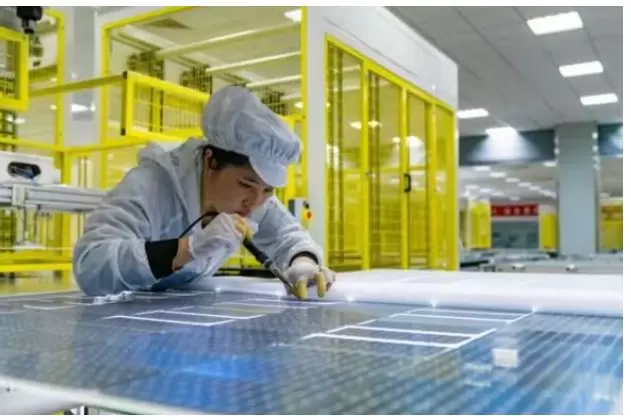Solar executives in China are railing the U.S. and Europe over trade protectionism, claiming that the West should instead “let the best technology win” in their respective markets.
The Financial Times conducted an interview with Zhou Shijun, who leads global marketing for Arctech, who told them that the West ignoring the best technology would “come back to haunt” the renewable energy industry.
Shijun said that the introduction of trade barriers disproportionately impacted manufacturers of advanced technologies. He also said that companies with overcapacity issues were producing cheaper products.
“We do have concerns that geopolitical tensions are affecting our global business. What we’re doing right now is diversifying,” he said. He told the Financial Times that China would “always” be renewables’ biggest market.
FT reported that China dominates over 80% of global solar manufacturing, driven by significant state investment, competitive local markets, and growing domestic demand for green technology.
Despite expectations of strong long-term demand, some Chinese solar manufacturers are increasingly exporting surplus supplies, leading to plummeting prices and complaints from the US and Europe about Beijing’s trade and industrial policies.
Back in the U.S., President Joe Biden significantly raised tariffs on Chinese imports, including electric vehicles and solar cells, and ended a tariff exemption on certain solar panel units.
The EU has been investigating China’s electric vehicle and renewable energy sectors and has reported on state-driven economic distortions in China.
Meanwhile, Shanghai-listed Arctech, which has a market capitalization of $1.9bn, is expanding internationally, balancing local regulations and technology-sharing demands without compromising its intellectual property.
Despite geopolitical tensions, the company views the adoption of large-scale renewable energy as a global trend that is both unstoppable and essential, according to FT.
The company operates three factories in China and is exploring new manufacturing sites closer to international markets, such as a new factory in Saudi Arabia, a research facility in Spain, and planned operations in Brazil.







